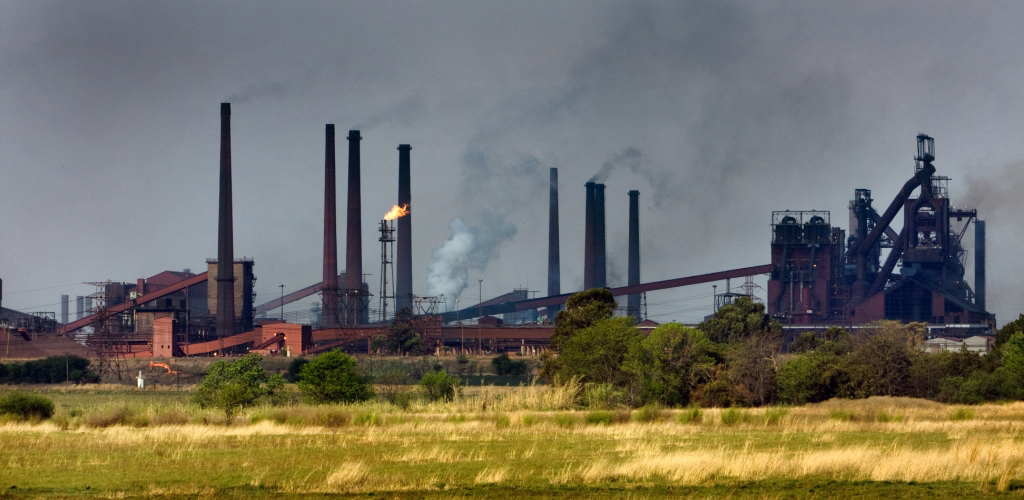Prague, Czech Republic, October 20, 2009 – Global Action on ArcelorMittal, a coalition of community and environmental groups, has urged the European Investment Bank (EIB) not to approve a EUR 250 million loan to Luxembourg-based ArcelorMittal tomorrow (Wednesday 21) at a meeting of the bank’s directors. [1]
In a letter to the EIB’s President Phillippe Maystadt, the group cites the company’s poor environmental record and the lack of visible results from other publicly financed projects undertaken by the company [2], as well as the fact that ArcelorMittal is the biggest beneficiary of the EU Emissions Trading Scheme, having managed to acquire EUR 1.3 billion worth of surplus emissions permits between 2005 and 2008 in spite of increasing its emissions. [3]
Jan Srytr, of the Czech Environmental Law Service’s GARDE Programme, said “The EU develops policies that aim to reduce Europe’s impact on climate change yet its house bank, the EIB, is intent on financially rewarding a company that instead of reducing its CO2 emissions has increased them between 2005 and 2008.”
Dana Sadykova, of Kazakh NGO Karaganda Eco-Museum, who has been monitoring projects financed by the European Bank for Reconstruction (EBRD) and Development at ArcelorMittal Temirtau in Kazakhstan for several years, said: “In the last 10 years ArcelorMittal and its predecessors have benefited from nine low-interest public loans worth more than USD 650 million for environmental improvements from the EBRD and the International Finance Corporation, yet the results are invisible. Local communities are still breathing in choking pollution”.
Sunita Dubey, of Friends of the Earth South Africa and co-ordinator of the Global Action on ArcelorMittal coalition, criticised ArcelorMittal’s double standards: “ArcelorMittal and its predecessors have taken advantage of weak legislation in countries outside of the EU and left local communities paying the price. In Kazakhstan, four fatal mining accidents have left 79 miners dead since September 2006, and in South Africa the company refuses to disclose information about its pollution while at the same time lobbying to weaken new emissions standards.”
Pippa Gallop, of CEE Bankwatch Network, which monitors the investments of the international financial institutions in Central and Eastern Europe, added: “ArcelorMittal has had ample opportunity to show its good will towards local communities and other stakeholders, but it has simply not shown itself worthy of public financing and the political seal of approval that this money entails. No one expected that its pollution problems would be solved overnight, but we’d expect to see some clear progress by now. To qualify for EIB support a company must show a much greater commitment to environmental standards and transparency across its operations.”
***
Notes for editors:
1. For information about the proposed EUR 250m EIB project see: http://www.eib.org/projects/pipeline/2008/20080197.htm
Although ArcelorMittal is not mentioned, CEE Bankwatch Network has obtained confirmation from the EIB that the loan is for ArcelorMittal.
“The project consists of activities for research, engineering and technological innovation related to process improvements (aimed at energy reductions, emission reductions, recovery and recycling of steel, steel and metal products, and by-products), and new steel product developments.”
2. For an overview of the issues and case studies about some of the countries, see Global Action on ArcelorMittal’s reports on the company’s environmental and social impacts:
ArcelorMittal: Going Nowhere Slowly (May 2009)
http://www.bankwatch.org/publications/document.shtml?x=2181974
and In the Wake of ArcelorMittal (May 2008)
http://www.bankwatch.org/publications/document.shtml?x=2093577
as well as at the coalition website: www.globalaction-arcelormittal.org
3. For details see calculations prepared by Corporate Europe Observatory: https://spreadsheets.google.com/ccc?key=pl52s4qQrteOKP6fVq6vYFg
Compared to the previous year ArcelorMittal’s verified emissions in the EU increased by 6.7% in 2006 and by 15.5% in 2007, with a downward trend (-12.8%) in 2008 due to the economic crisis.
See also a September 2009 article in the Guardian: http://www.guardian.co.uk/business/2009/sep/09/european-carbon-trading-surplus-permits







